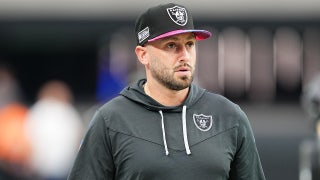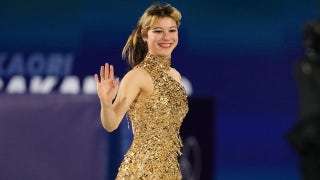LONDON (AP) — An Olympic official familiar with the negotiations says the IOC is closing in on potential multimillion-dollar sponsorship deals with Dow Chemical and Procter & Gamble.
The high-ranking official says talks with the U.S.-based companies are in the late stages and the International Olympic Committee hopes to complete the deals within a month. The official spoke to The Associated Press on condition of anonymity because the negotiations are still in progress.
The IOC has nine companies in its top-tier sponsorship program for the 2012 London Olympics. It has been looking to add two more to match the number from the previous four-year cycle.
The IOC's global sponsorships usually cover at least four years and sell for up to $100 million.
Talks with potential new sponsors stalled last year because of the global economic downturn. The IOC has already secured close to $900 million in sponsorship revenue for the current four-year cycle, but hopes to break the $1 billion mark.
The current sponsors for London are Acer, Atos Origin, Coca-Cola, GE, McDonald's, Omega, Panasonic, Samsung and Visa. The Panasonic and Samsung deals run through 2016, while Coke and Omega are signed up through 2020.
Procter & Gamble, a consumer products company based in Cincinnati, is already a U.S. Olympic Committee sponsor. It provided financial aid to more than 200 mothers of U.S. Olympic athletes at the Vancouver Games.
Dow is a chemical and manufacturing company based in Midland, Mich. It has a broad reach, from agricultural seeds to ingredients for cosmetics, electronics components, automobile paint and food additives.
Global sponsors, which have exclusive worldwide Olympic marketing rights, contribute about 40 percent of the IOC's total revenues. The previous sponsorship program for 2005-08 brought in $866 million.
Adding new sponsors could help settle one of the key financial disputes between the IOC and the USOC.
The two sides have been trying to reach an agreement on how much the USOC should pay toward the administrative costs of putting on the Olympics.
IOC and USOC officials said last month that the addition of at least one new TOP sponsor would pump more money into the revenue pie and make it easier for the American body to compromise on the games-costs issue.
The two sides also agreed last year to begin negotiations in 2013 on a new revenue-sharing formula that would go into effect in 2020.
The USOC gets a 20-percent share of global sponsorship revenue and a 12.75-percent share of U.S. broadcast rights deals. Many international officials think it's too big a portion.








































